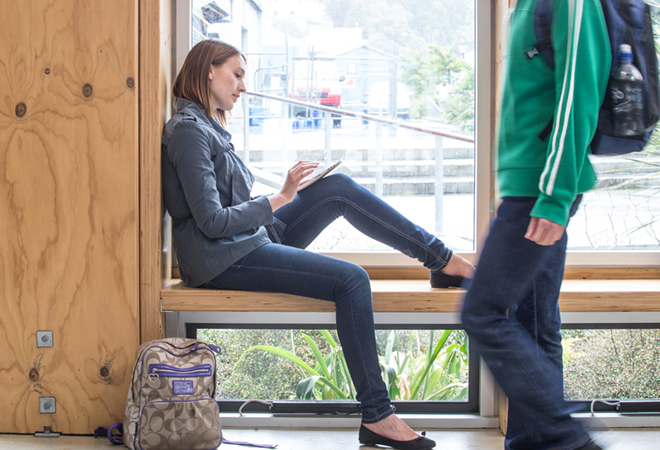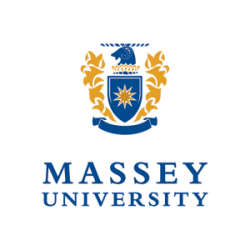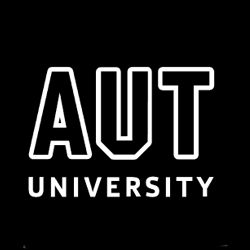
Mobile Learning with Location-aware, Augmented-reality Business Games
Status
Completed: 6 December 2011
Project Details
A project, completed in 2011, to create a mobile business consulting game that can support contextual learning, is freely available and is easy for both teachers and learners to use in any physical environment. A collaboration of Massey University and Auckland University of Technology.
Aims:
The main aims of the project were to:
- create a mobile learning application for undergraduate students in business and related disciplines that simulates a real-world consulting exercise
- provide a suite of software – including a serious game – targeted at common mobile devices that can be used to assist the teaching of skills relevant to business-related subjects
- improve academic achievement through increased student engagement and cooperation, fostered by the use of mobile learning
- improve the engagement and achievement of undergraduate students in business and related disciplines by improving the practicality, reusability, sustainability and accessibility of mobile learning tools
- provide easy-to-use teaching tools for staff wishing to introduce mobile learning experiences
- extend current research on mobile learning tools.
Methodology:
A design science research method was used to develop and evaluate the mobile business game. The software was empirically evaluated by user testing with both staff and students. Both quantitative and qualitative data was gathered using multiple approaches to data collection:
- a questionnaire was administered to the participants after the practical activity
- semi-structured interviews were conducted with the participants after the practical activity
- observations were made of participants carrying out the practical activity
- data logs from the mobile devices were analysed.
The iterative design science cycle was applied through the development of the project artefacts and their evaluations. There were two major design cycles, each one consisting of smaller iterations of design, implementation and evaluation.
Team

Dr David Parsons
Project Leader
Massey University
Dr Krassie Petrova
Auckland University of TechnologyStatus
Funding
$8,663.00 (excl GST)
Key Findings
The key findings from the project were:
- A working mobile learning business game using location aware augmented reality was developed to support teaching business-related concepts and skills. It provides a business game toolset that can be used by any tertiary provider without major investment in time or technology.
- The software developed to support the game, and the game itself, were successfully tested at 2 campuses. This demonstrated that the game is characterised by a high level of participant engagement and that learners were able to identify the business issues being presented in the game and identify solutions.
- Learners found the game engaging and motivating, and the project was successful in providing a context within which students brought their higher-level thinking skills to bear on the problems presented by the game.
- The evaluations indicate, however, that the project was less successful in providing a game that worked well as a team activity. Since teamwork is an important ‘soft’ skill that the project hoped to develop within the game, further work on the game design and implementation is needed to address this current limitation.
Key Recommendations
The key recommendations from the project were:
Further development as an open source project | The results of the evaluations suggest that the system needs to be developed further as an open source project. The data gathered from the user trials suggests a range of improvements that should be made to the software now that it is in the public domain. Therefore, it is intended to continue with work on the project, possibly using other sources of funding, to continue improving the application.
Making it practical for non-technical staff | At present, it is possible for the game to be reused in any location, provided that a technically skilled person undertakes the local configuration. However, this does not yet meet the aim of making this practical for non-technical staff. Therefore, work will continue on the system to make the process easier and less time consuming.
Future development | Although this particular phase of the project has now come to an end, it is only one step on the way to creating a fully featured, reusable mobile business game that provides real educational value and can be freely used by any educator in any location. In the longer term the number of learners who could benefit from the outcomes of this project will be much larger than the initial group which participated in the evaluation. Future development and use of the tool will continue to involve an increasing number of learners.
A research report prepared by David Parsons and Krassie Petrova.
(PDF, 707 KB,36-pages).
- 20 December 2011
A mobile learning resource developed by David Parsons and Krassie Petrova.
- 20 December 2011